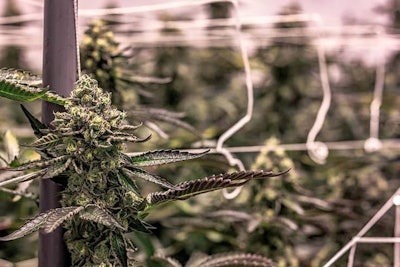
Christian | Adobe Stock
This week, Cresco Labs co-founder Joe Caltabiano resigned from the company’s board of directors, effective immediately, after stepping down from his role as president in March. Elsewhere, Vireo Health terminated its employment agreement with former Canopy Growth CEO Bruce Linton.
Here, we’ve rounded up the 10 headlines you need to know before this week is over.
- Federal: Cresco Labs co-founder Joe Caltabiano has resigned from the company’s board of directors, effective immediately, after stepping down from his role as president in March. “As a co-founder of Cresco, I’ll admit it’s difficult to leave after watching Cresco Labs grow to one of the more successful cannabis companies in the United States,” Caltabiano said in a public statement. “But I feel good knowing the board is in a good position to push the vision forward, especially as cannabis use increases and this essential industry expands.” Read more
- Vireo Health, a multistate cannabis company, announced this week that it has terminated its employment agreement with Bruce Linton, the former CEO of Canopy Growth. Linton joined Vireo as executive chairman in November 2019, after being ousted from Canopy Growth last July. Read more
- Hightimes Holding Corp. has announced a strategic agreement with multistate cannabis operator Red White & Bloom (RWB) to enter the Michigan, Illinois and Florida markets. Under the agreement, RWB will rebrand its 18 planned and operational dispensaries with the Hightimes trademark, logo and brand, and High Times-branded products such as vapes, tinctures, topicals and edibles will be available for sale within these storefronts as well as other third-party outlets. Read more
- Illinois: The Department of Financial and Professional Regulation (IDFPR) has adopted permanent rules to break ties in the next phase of the state’s cannabis dispensary licensing process. IDFPR released emergency rules in December to select dispensary licensees when applications are tied for the last remaining license or licenses in a specific region, but due to the delay in awarding the licenses in the wake of the COVID-19 pandemic, the emergency rules will expire before licenses are ultimately awarded, prompting the adoption of permanent regulations. Read more
- Oregon: New figures from the Oregon Liquor Control Commission reveal that the state’s cannabis sales surpassed $100 million in May, which is 60% higher than May 2019. This is also the first time that sales have topped $100 million in a month. Read more
- The Oregon Cannabis Association (OCA) is calling on Portland city officials to cease using funds derived from the city’s cannabis tax to bolster law enforcement budgets, instead letting the revenue flow toward social programs and services that help minority communities, as per an agreement the organization had reached with the city when the new tax was implemented. In a June 8 letter to Portland Mayor Ted Wheeler, the OCA, which represents more than 200 cannabis businesses in the Beaver State, says the city has not respected the agreement reached between officials and the OCA about how the 3% city cannabis tax is spent. Read more
- Missouri: Regulators have issued their first annual report on the state’s medical cannabis program, as required under the state’s medical cannabis law, which voters passed in 2018. The state approved 23,269 patients and caregivers in 2019, according to the report, although medical cannabis sales have yet to launch. Read more
- Iowa: The Department of Health has rescinded a request-for-proposal for two licensed medical cannabidiol dispensaries after the closure of two storefronts earlier this year, but state officials plan to reissue the application in the next few days. The change comes after new legislation that has altered Iowa’s medical cannabis program since the Department of Health initially issued its RFP. Read more
- Kansas: A bill to legalize medical cannabis in Kansas stalled in committee during the legislature’s recent special session. The legislation, which was introduced by Rep. Cindy Holscher and seven other cosponsors, was defeated in a vote by the Committee on Federal and State Affairs. Read more
- Ohio: An Ohio State Medical Board committee recommended adding cachexia, or wasting syndrome, as a qualifying condition for the state’s medical cannabis program this week, while rejecting autism and anxiety. The full board is expected to make a final decision on the conditions at its upcoming July meeting. Read more

























